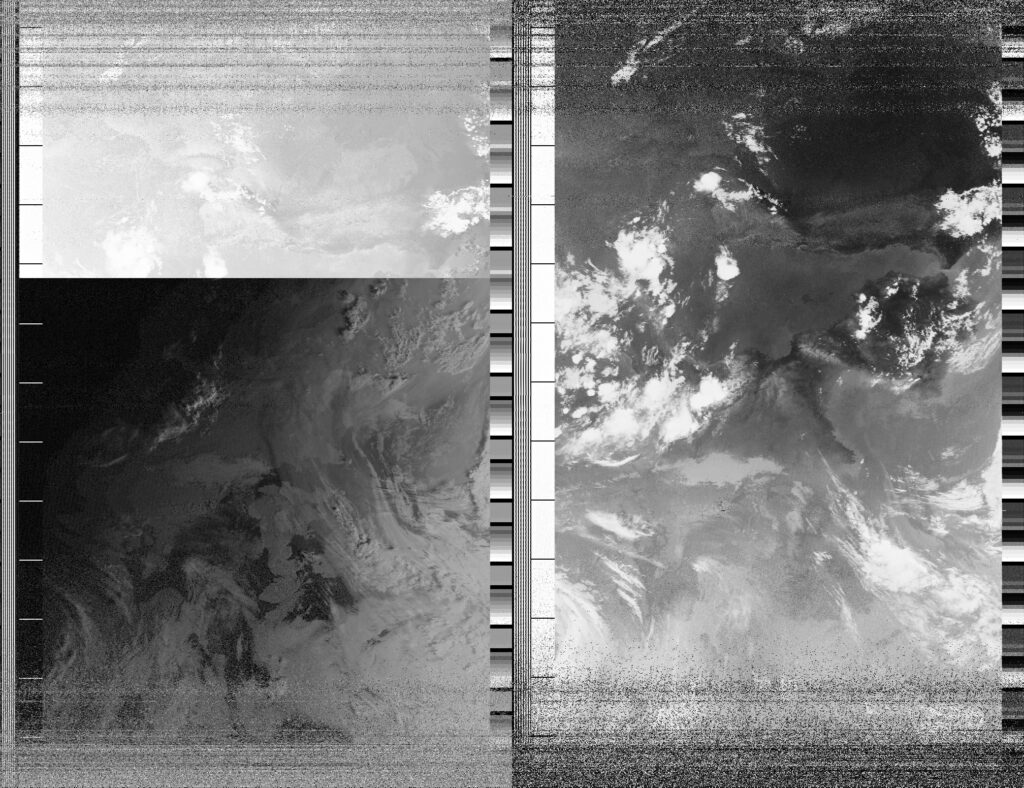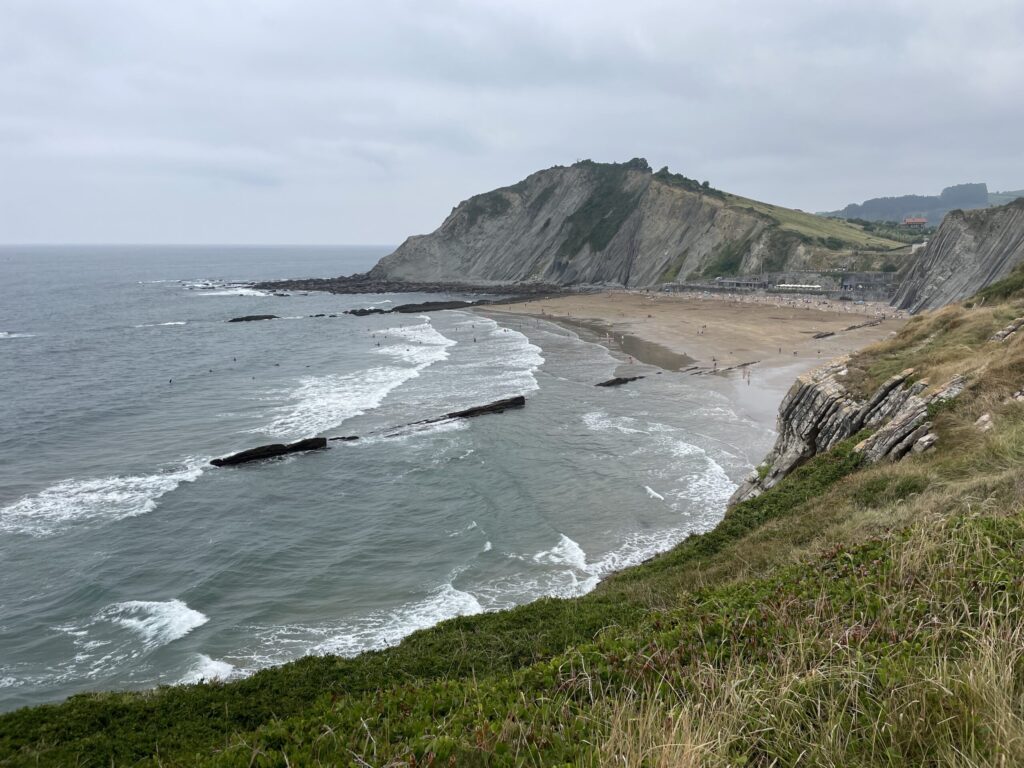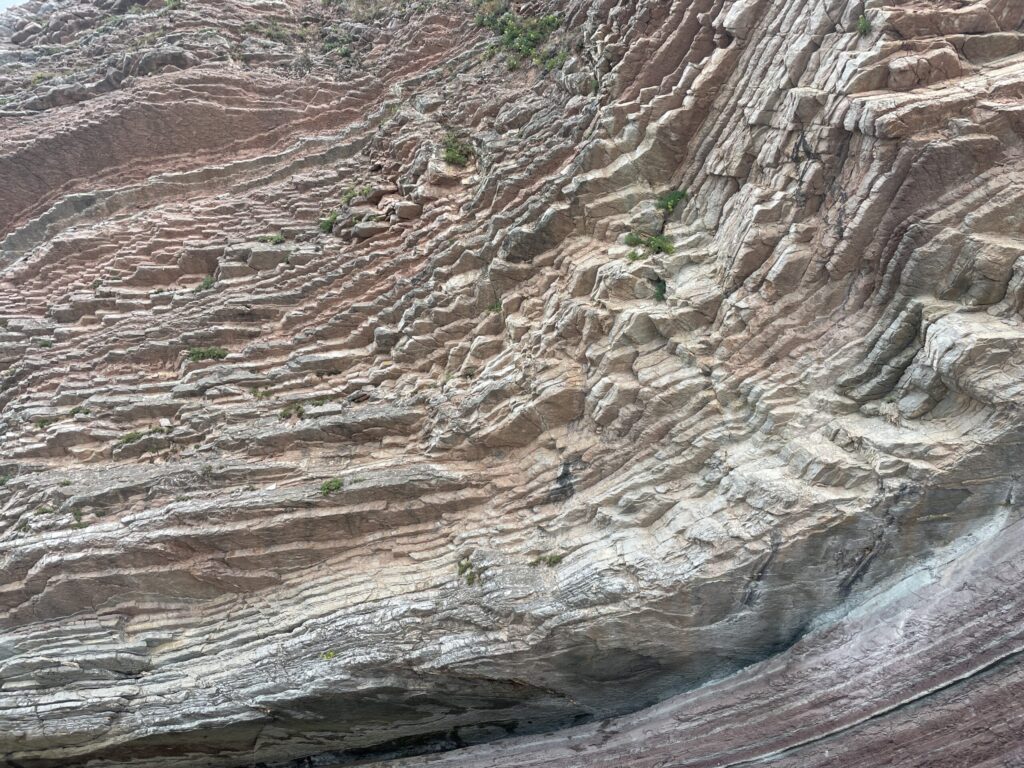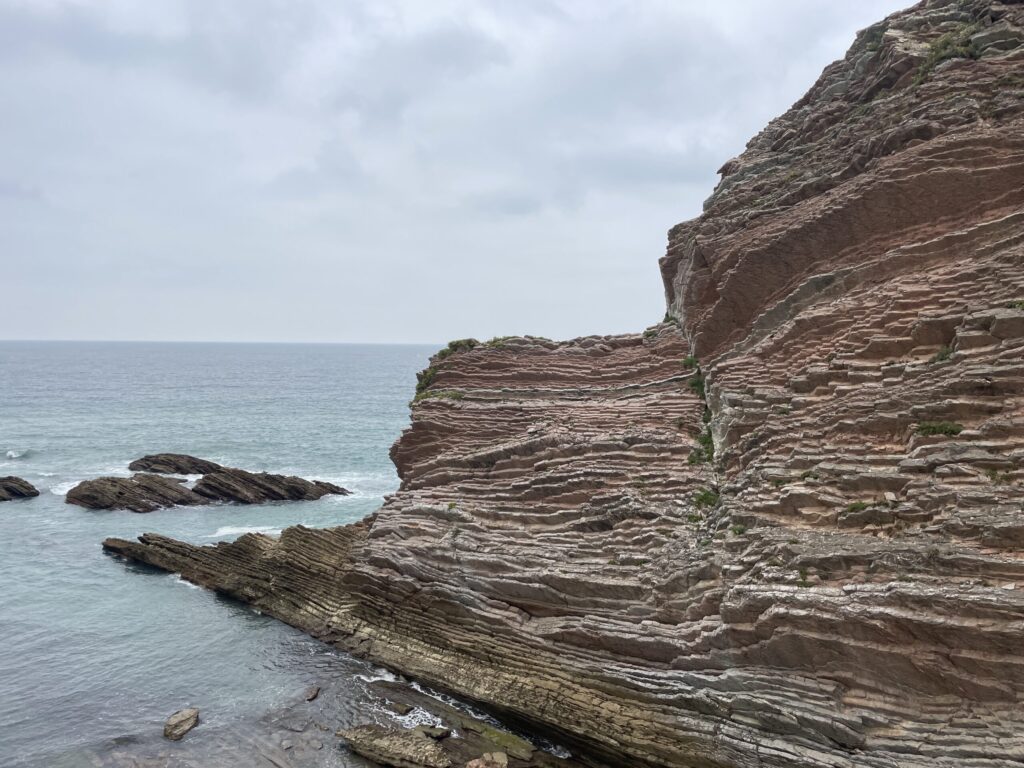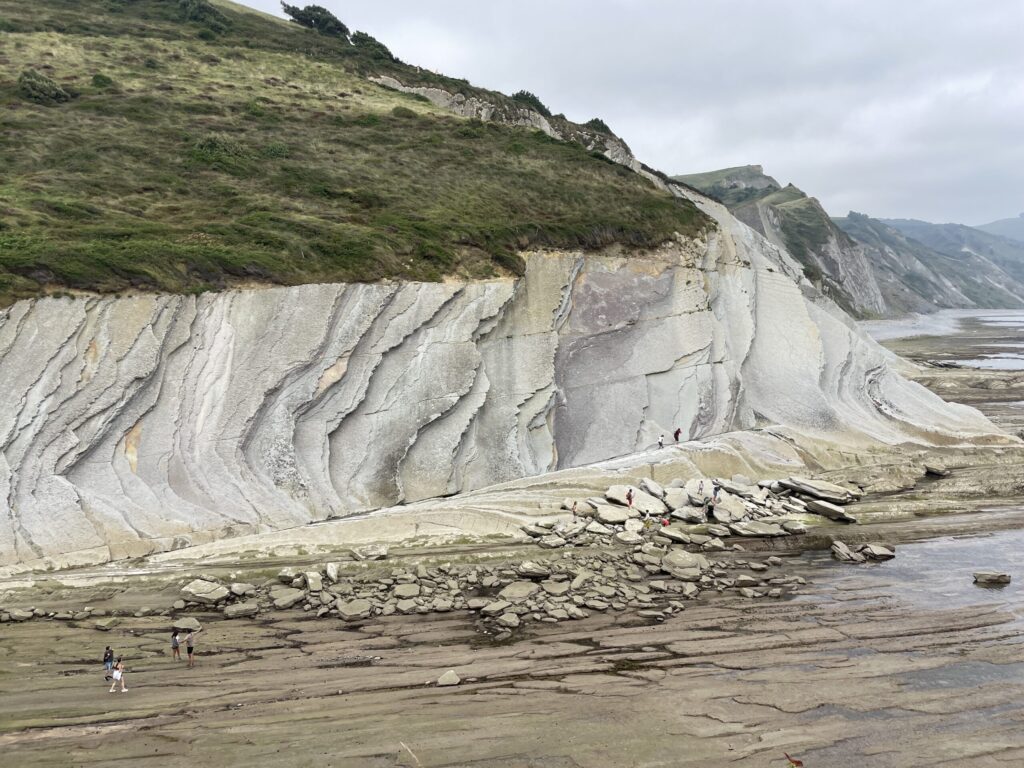Local Date
16 August 2025Local Time
20:13Location
ZumaiaCountry or Territory
SpainContributor
Sasha EngelmannSatellite
NOAA-15Radio Callsign
Archive ID
Coordinates
On the seaside earlier today, we observed a cliffside made of hundreds of striated rock layers. They followed each other closely, tracing back hundreds of millions of years in their gentle curves. One line was very thin and black, and represented the mass extinction event of 66 million years ago, during which 75% of marine mammals and other life forms perished. The layer was found to contain a very high amount of Iridium, otherwise very rare on earth, which corroborates the theory that a giant meteor caused the mass extinction. This is the meteor that fell in what is now the Gulf of New Mexico, creating the conditions for massive deposits of fossil hydrocarbons that are exploited by oil companies today. Though I was already convinced of the ‘fractal’ quality of such histories, whereby ancient ‘catastrophes’ spiral in self-similar yet changeable patterns into contemporary times, seeing the mass extinction event inscribed in striations of rock made this idea even more palpable.
